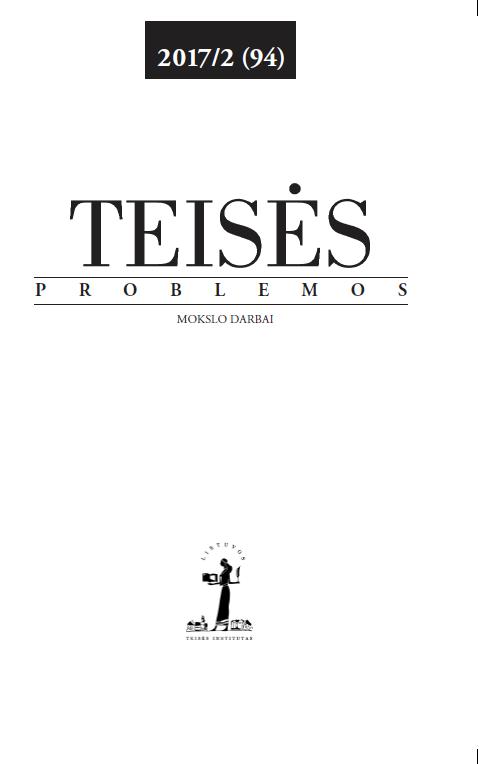Korupcija nevyriausybiniame sektoriuje: politinė korupcija labdaros ir paramos fondų veikloje
Corruption in Non Governmental Sector: Political Corruption in Activities of Charity and Support Funds
Author(s): Mindaugas Lankauskas, Simonas NikartasSubject(s): Law, Constitution, Jurisprudence, Criminal Law
Published by: Lietuvos teisės institutas
Summary/Abstract: First of all, the article deals with the aspects of the concept of corruption. The article reveals that definitions of corruption established in the Lithuanian legal acts, which are not sufficient to des¬cribe the phenomenon of corruption in NGOs: it is limited to definitions of criminal law, which do not cover corruption characteristics specific to the NGO sector. Therefore, it is appropriate to define the phenomenon of corruption in the NGO sector with reference to the broader concept of corruption. Taking into account the specifics of the NGO sector, the concept of corruption for NGOs is best described by these elements: public interest, the receipt of resources from donors, misuse of the resources received, use of the resources received for public interest, violation of the established procedure and the NGO’s instrumentalization in order to obtain unlawful benefits. The Aid and Charity foundations are particularly vulnerable to corruption if they act on behalf of politicians actively participating in political life. In such cases, there is a risk that the foundation may be used to finance illegal activities of a politician or political party. One of the most common examples is the hidden political advertising in various public events. Another problem is the lack of transparency in the foundations’ activities. In 2016, only 8 out of 14 foundations, affiliated with the Parliament members, had official websites. However, straightforward prohibition of registering foundations on behalf of politicians seems to be too rigorous and disproportionate. Such a measure restricts possibilities of politicians to engage in socially beneficial activities but does not prevent non-transparent activities. It should be noted, that recent legal amendments, proposed by the President Office, are directly intended to combat the lack of transparency in this sphere by imposing addi¬tional obligations on disclosure of relevant documents and sanctions for failure to provide information. In order to strengthen the transparency and accountability of foundations it is further suggested that documents should also be freely available on the social media accounts of the foundations (as an alternative to submission on official websites). Moreover, it would be useful to provide an obligation to respond to the electronic inquiries of the citizens. In the context of the Aid and Charity foundations, it is not clear what could be conside¬red a political advertisement. A narrow interpretation of the political advertising definition according to the Law on the Financing of Political Parties and Political Campaigns could lead to the conclusion that naming the foundation on behalf of a politician can be considered as a “propaganda” of certain politician. The same applies to organizing of discussion events, which can be considered as “promoting ideas”. Therefore, it would be useful if the Central Electoral Commission of the Republic of Lithuania gave detailed clarification what is spe-cifically considered as political advertising in the context of the activity of the foundations.
Journal: Teisės problemos
- Issue Year: 2017
- Issue No: 94 (2)
- Page Range: 87-114
- Page Count: 28
- Language: Lithuanian

